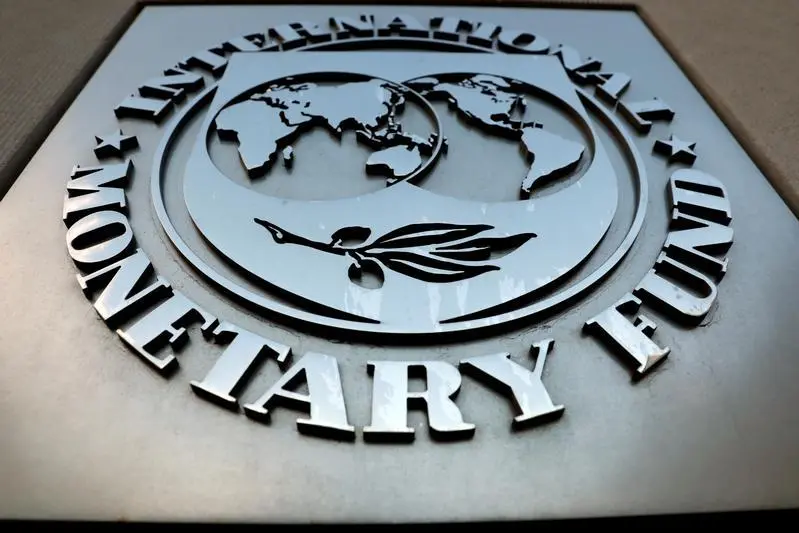PHOTO
As the coronavirus infections continue to spread at alarming levels, the International Monetary Fund (IMF) has called on governments in the Middle East for urgent economic policy actions and warned that the health crisis, coupled with the oil price plunge, could significantly drag growth and lead to job losses and bankruptcies.
The key job-rich sectors in the region, including the UAE - home to a huge concentration of expats - have already been impacted by the series of measures to contain the spread of the pandemic, and there will be “wide reverberations” if people lose jobs, and salaries and remittances fall, said Jihad Azour, IMF director of the Middle East and Central Asia on Monday.
“Measures to contain the pandemic’s spread are hurting key job-rich sectors: tourist cancellations in Egypt have reached 80 percent, while hospitality and retail have been affected in the United Arab Emirates and elsewhere,” said Azour.
“Given the large numbers of people employed in the service sector, there will be wide reverberations if unemployment rises and wages and remittances fall,” he added.
Emergency aid
Dozens of countries in the region, including the Caucasus and Central Asia, have already asked the IMF for emergency financial aid, and the first to receive the disbursement could be the Kyrgyz Republic, said Azour.
“The impact of COVID-19 and the oil price plunge in the Middle East… has been substantial and could intensify,” said Azour.
“With three-quarters of the countries reporting at least one confirmed case of COVID-19 and some facing a major outbreak, the coronavirus pandemic has become the largest near-term challenge to the region,” he added.
Economic impact
Economies in the region already experiencing a drop in domestic and external demand, reduction in trade, disruption in production, a fall in consumer confidence and tightening of financial conditions.
Governments around the world have either tightened or shut their borders, closed the doors to commercial establishments and public venues, and advised their citizens to self-isolate, as they grapple to contain the fast-spreading virus.
The numerous travel restrictions have not just left airlines bleeding, but also the price of oil has plunged by more than 50 percent since the start of the epidemic. Businesses across various sectors, including hospitality and retail, are bearing the brunt, too.
“The intertwined shocks are expected to deal a severe blow to economic activity in the region, at least in the first half of this year, with potentially lasting consequences,” Azour said.
He said that production and manufacturing are also being disrupted and investment plans put on hold, while the region’s oil exporters are affected by lower commodity prices.
Portfolio flows into the region have dropped by nearly $2 billion since mid-February, equity prices have dropped, and bond spreads have risen. The tightening financial conditions, Azour said, could be a major challenge, since the region has an estimated $35 billion in maturing external sovereign debt this year.
“Against this challenging backdrop, the region is likely to see a big drop in growth this year,” he said.
The IMF announced early this month it will extend up to $50 billion in emergency aid for countries hit by the coronavirus pandemic. The fund will be available for low-income and emerging market countries that could potentially seek support.
The UAE has just approved a 16 billion UAE dirhams ($4.3 billion) stimulus package to fend off the economic impact of the pandemic, bringing the total emergency fund allocated by the government to 126.5 billion UAE dirhams ($34.4 billion).
The UAE has recently reported 45 new coronavirus cases, bringing the total number of infections in the country to 198. Across the world, the virus has infected more than 390,000 people, with the death toll reaching 17,000 and recoveries hitting more than 100,000.
The UAE has decided to suspend all inbound, outbound and transit flights for two weeks from Wednesday and close all the malls, schools, public venues, beaches and bars as part of precautionary measures to stem the spread of the virus.
Economic policy response
Governments in the region should focus their actions on limiting the spread of the virus to protect public health, said Azour.
“Governments should spare no expense to ensure that health systems and social safety nets are adequately prepared to meet the needs of their populations, even in countries where budgets are already squeezed,” he said.
“Economic policy responses should be directed at preventing the pandemic - a temporary health crisis - from developing into a protracted economic recession with lasting welfare losses to the society through increased unemployment and bankruptcies,” he added.
(Reporting by Cleofe Maceda; Editing by Mily Chakrabarty)
#IMF #JOBS #MIDDLEEAST #ECONOMY #CORONAVIRUS
Disclaimer: This article is provided for informational purposes only. The content does not provide tax, legal or investment advice or opinion regarding the suitability, value or profitability of any particular security, portfolio or investment strategy. Read our full disclaimer policy here.
© ZAWYA 2020





















